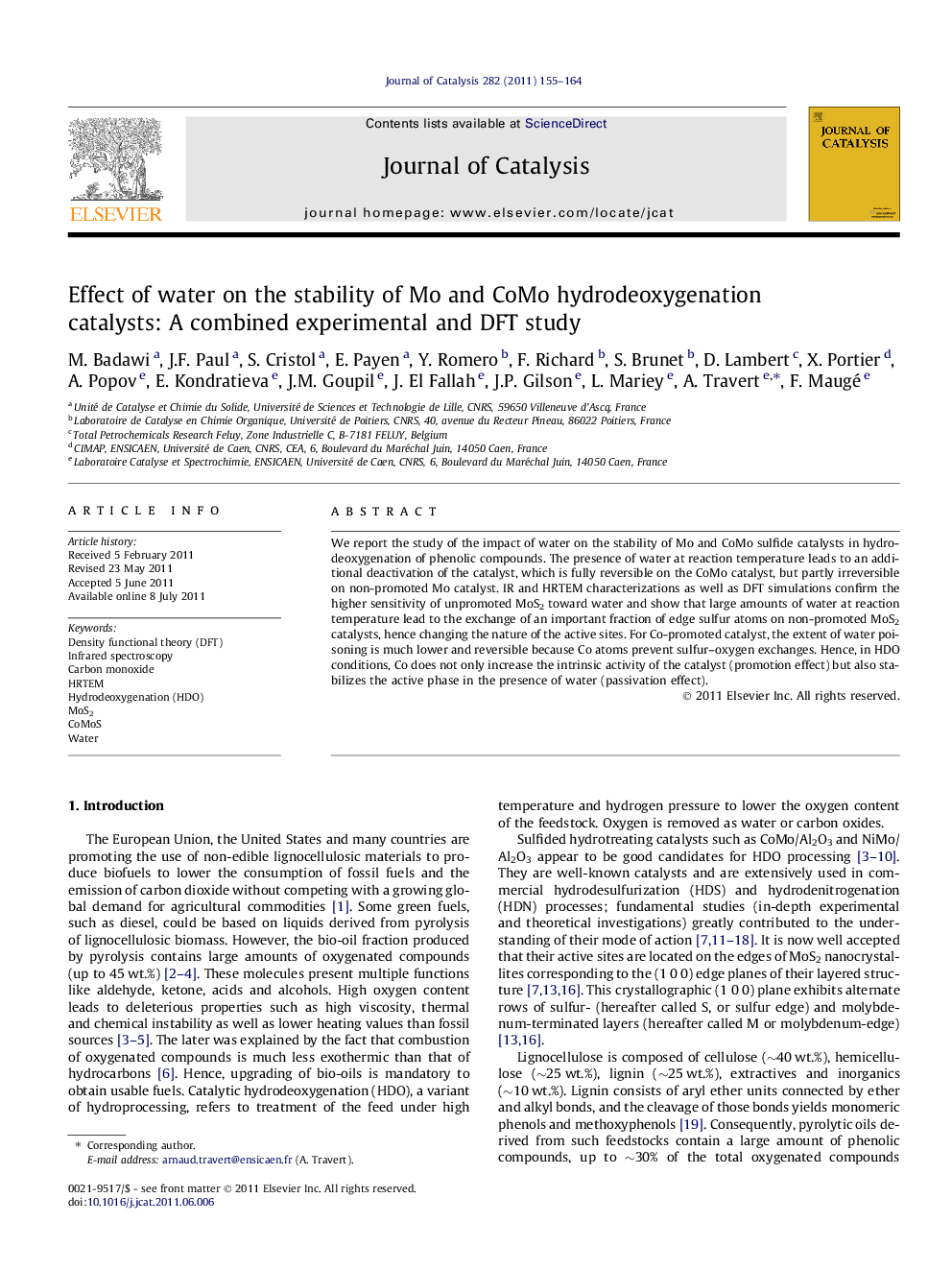| Article ID | Journal | Published Year | Pages | File Type |
|---|---|---|---|---|
| 61629 | Journal of Catalysis | 2011 | 10 Pages |
We report the study of the impact of water on the stability of Mo and CoMo sulfide catalysts in hydrodeoxygenation of phenolic compounds. The presence of water at reaction temperature leads to an additional deactivation of the catalyst, which is fully reversible on the CoMo catalyst, but partly irreversible on non-promoted Mo catalyst. IR and HRTEM characterizations as well as DFT simulations confirm the higher sensitivity of unpromoted MoS2 toward water and show that large amounts of water at reaction temperature lead to the exchange of an important fraction of edge sulfur atoms on non-promoted MoS2 catalysts, hence changing the nature of the active sites. For Co-promoted catalyst, the extent of water poisoning is much lower and reversible because Co atoms prevent sulfur–oxygen exchanges. Hence, in HDO conditions, Co does not only increase the intrinsic activity of the catalyst (promotion effect) but also stabilizes the active phase in the presence of water (passivation effect).
Graphical abstractWater impacts the stability of Mo and CoMo sulfide catalysts in hydrodeoxygenation of phenolic compounds. Co promotes the catalytic activity and stabilizes the active phase in the presence of water.Figure optionsDownload full-size imageDownload high-quality image (106 K)Download as PowerPoint slideHighlights► Impact of H2O on Mo and CoMo sulfide catalysts during HDO of phenolic compounds. ► Non-promoted Mo catalysts are more sensitive toward water due to SO exchanges. ► Co improves the activity (promotion) and stability of the active phase (passivation).
